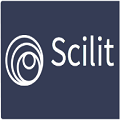Unveiling Users Perspective
A Study of Public Libraries Collection and Services in Haryana State, India
DOI:
https://doi.org/10.48001/veethika.2024.10.02.002Keywords:
public library, collection, services, user satisfaction, library infrastructure, staff-user relationship, district public libraries, haryana, IndiaAbstract
The public library is an abode of information and knowledge, committed to education, culture, and Library advocacy. Though public libraries are called “people’s University” and cater to varied categories of users and their infinite information needs without any discrimination but still in India many such libraries are still not providing effective services to the user community.
In India, out of 28 states, 19 states have already enacted library legislation with the latest entrant being Telangana State (2015) and though Haryana State enacted the Act in the year 1989 but still very few comprehensive studies conducted either by any public library or the users’(RRRLF). Well, the present study attempts to check out the ground reality of the State Central Library along with 2 District Libraries of the State of Haryana in terms of library collection, services, facilities, and user satisfaction.
A descriptive survey research design was employed, and 500 library users across three public libraries were surveyed using a structured questionnaire, out of which 396 responses(n=396) were found eligible for the analysis. The study found an improvement in the use of public libraries in the region but identified some inadequate facilities like lack of enhanced library services along with updated collection, and poor internet/ICT services as major factors affecting user satisfaction. The findings suggest that the Haryana government should increase funding to public libraries to acquire adequate information resources and ICT facilities, thereby increasing the utilization of public libraries and meeting the information needs of the users.
Downloads
Downloads
Published
How to Cite
Issue
Section
License
All QTanalytics journals are published Open Access. Articles are licensed under an open access licensed under Creative Commons Attribution-NonCommercial 4.0 International License. In addition, the article may be reused and quoted provided that the original published version is cited. These conditions allow for maximum use and exposure of the work, while ensuring that the authors receive proper credit.











 journals@qtanalytics.in, support@qtanalytics.in | Phone: +91-9458270556
journals@qtanalytics.in, support@qtanalytics.in | Phone: +91-9458270556
